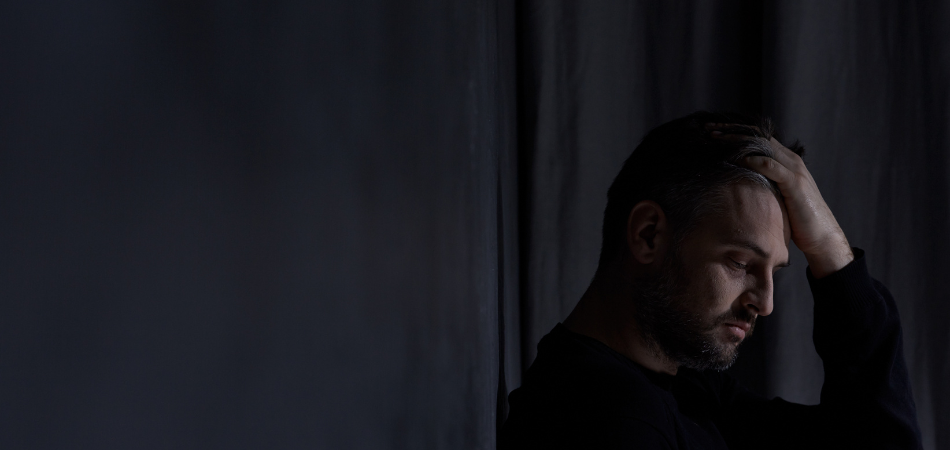Addiction is a powerful force with the physical hold that substances like alcohol and drugs can have on you, making quitting feel impossible. Trying to quit cold turkey at home can be challenging and dangerous, so professional help is essential. A medically guided detox provides the safest and most effective way to break physical dependency, navigate withdrawal symptoms and lay the groundwork for a successful recovery from addiction.

What is detox?
Detox, short for detoxification, is about giving your body a chance to clear out the drugs or alcohol it’s become dependent on. When you use substances regularly, your body starts to rely on them on a chemical level, so when you try to stop, there can be a sudden chemical imbalance, causing withdrawal symptoms. These can be anything from feeling anxious and nauseous to more serious physical and mental health risks.
This is why detox is so important. Trying to do it alone can be tough, and in addition to the dangers of withdrawal, the unpleasant symptoms can also drag you back into using drugs or alcohol to feel better. Medically supervised detox means you have a team of professionals by your side, helping you through the tunnel of withdrawal to the light at the other end.
Detox can help you safely break free from various substances, including:
The detox process explained
Going through detox can be very daunting, but knowing what to expect can help you feel more prepared and less anxious. Here’s a step-by-step look at what medically supervised detox involves:
Assessment
The first step is a full health assessment where healthcare professionals evaluate your physical and mental health, your history with substance use and any specific needs you might have. This helps them create a personalised detox plan just for you.
Stabilisation
During this phase, you will start to reduce or stop using the substance. Some substances can be stopped immediately, but many require a tapering process where you slowly take less and less each day.
This is where medically supervised detox shines, as you have constant care and support with withdrawal symptoms. Sometimes, your medical team may administer certain medications to help manage discomfort and prevent complications.
Transition to therapy
Detox is just the beginning of comprehensive rehab treatment. Once you are stabilised, the focus shifts to preparing you for the next steps in your recovery journey. This involves moving to a therapy programme where the non-physical aspects of addiction are treated.
The benefits of detox
Choosing to go through a detox can be one of the most important steps you take toward recovery. Here are some key detox benefits:
Common withdrawal symptoms during detox
Withdrawal symptoms can vary widely depending on the substance and the individual. However, there are some common symptoms you may experience during detox which show why home detox can be so dangerous:
Physical withdrawal symptoms
These can include headaches, nausea, vomiting, muscle aches, sweating and shaking. Some people might also experience more severe symptoms like seizures or heart palpitations.
Emotional withdrawal symptoms
Anxiety, depression, irritability, and mood swings are common with alcohol and various drugs. You may also feel restless or have trouble sleeping, particularly when withdrawing from drugs that usually cause sedation.
Cognitive withdrawal symptoms
Difficulty concentrating, confusion and memory problems can occur as your brain adjusts to the absence of the substance and takes a little time to rebalance your body’s chemicals.
Detox/withdrawal timelines
The duration and intensity of withdrawal symptoms can differ a lot between alcohol and the various types of drugs. However, here are some general timelines to give you an idea of what to expect:
Alcohol
Withdrawal symptoms typically begin within 6-12 hours after the last drink, peak around 24-72 hours and can last up to a week. Serious cases may experience Delirium Tremens, the most severe form of alcohol withdrawal, which can be fatal without medical intervention.
Opioids
This includes heroin and prescription opioid medications. Symptoms usually start within 12-30 hours after the last dose, peak at the three-day mark and generally resolve within a week. However, some individuals may experience lingering symptoms for months, known as post-acute withdrawal syndrome (PAWS).
Benzodiazepines
Benzodiazepine withdrawal is one of the toughest, usually beginning within 1-4 days and potentially lasting several weeks to months. Withdrawal symptoms can be severe, so a gradual tapering plan under medical supervision is often recommended.
Stimulants
This includes illegal drugs like cocaine and methamphetamine and prescription stimulants like Adderall and other amphetamines. Physical symptoms can emerge within a few hours to several days, peak within a few days and generally disappear within a week. Psychological symptoms like depression and cravings may persist longer in some cases, depending on the type of stimulant.
Detox medications
During the detox process, medications can play a crucial role in managing withdrawal symptoms and ensuring your safety. These medications are tailored to your specific needs and the substance you are detoxing from. Here’s how they can help:
Find the right detox treatment for your needs
If you are ready to take the first step toward addiction recovery, seeking a medically supervised detox is the safest and most effective way to start. We have a directory of UK detox centres around the UK and can help you decide which is best.
No matter where you live, there is a drug rehab center that can help you overcome your addiction. We will help you find it.
Call our admissions line 24 hours a day to get help.






